Dr.Teruo Higa’s
Living A Dream
- 2025
- Sep:#209 The Widespread Use of EM in Ecuador
- Sep:#208 The Widespread Use of EM in Chile
- Jul:#207 Peru, where EM has taken root throughout the country
- May:#206 EM Application Technology in Paraguay Begins to Evolve into Advanced Circular Agriculture
- May:#205 Practical Application of Soil Disinfectant-Free Cultivation Using EM Technology
- Apr:#204 How EM Use Has Spread Throughout the Philippines
- Mar:#203 How to Use EM to Fundamentally Solve the Problem of Agricultural Residue Burning
- Feb:#202 The Spread of EM technology in Germany
- Jan:#201 The 2nd Ichiro Masaki Memorial Universal Village EM International Conference
- Jan:#200 Cleanup of the Ala Wai Canal in Hawaii, where social bonds are strengthened using EM
- 2024
- Nov:#199 EM trials in India with bananas, tomatoes, and pomegranates
- Oct:#198 The Steadily Evolving EM Nature Farming Method at the Blue Sky Palace - Part 8
- Sep:#197 The Steadily Evolving EM Nature Farming Method at the Blue Sky Palace - Part 7
- Aug:#196 The Steadily Evolving EM Nature Farming Method at the Blue Sky Palace - Part 6
- Jul:#195 The Steadily Evolving EM Nature Farming Method at the Blue Sky Palace - Part 5
- Jun:#194 Steadily Evolving EM Nature Farming Method at the Blue Sky Palace - Part 4
- May:#193 Steadily Evolving EM Nature Farming Method at the Blue Sky Palace - Part 3
- May:#192 Steadily Evolving EM Nature Farming Method at the Blue Sky Palace - Part 2
- Apr:#191 Steadily Evolving EM Nature Farming Method at the Blue Sky Palace
- Mar:#190 Quantum Mechanical Effects of EM Gravitron Charcoal
- Mar:#189 The barrier space in Okinawa (Ryukyu Islands) has risen to another dimension
- Jan:#188 Sixty Days after Typhoon No.6
- 2023
- Oct:#187 Supermassive Typhoon No.6 and Subsequent Typhoon No. 11
- Sep:#186 Massive Typhoon No.6 that swallowed the Ryukyu Islands Graviton barrier
- Sep:#185 August 8th is World “EM Mudball Day”
- Aug:#184 A disease-free life depends on the health of the intestinal microbiome.
- Jul:#183 Trial and Error at the Blue-Sky Palace, Part 3
- Jun:#182 Trial and Error at the Blue-Sky Palace, Part 2
- Apr:#181 Trial and Error at the Blue-Sky Palace
- Mar:#180 Ala Wai Canal Cleanup Project in Waikiki, Hawaii
- Feb:#179 High-Yield, High-Quality Rice Production Using EM
- Feb:#178 The Progress the "Soil Preparation Workshop" of the Oishi 3-chan Club (Part 2)
- Jan:#177 Organic Farming Instructional Manual Using EM
- 2022
- Nov:#176 The Typhoon Situation in Okinawa in 2022
- Sep:#175 Third-Party Verification of the Graviton barrier in Okinawa Part-2
- Sep:#174 Third-Party Verification of the Graviton barrier in Okinawa
- Aug:#173 Ecosystem Changes Observed in Okinawa in 2021 Part-5
- Jun:#172 Ecosystem Changes Observed in Okinawa in 2021 Part-4
- May:#171 Ecosystem Changes Observed in Okinawa in 2021 Part-3
- Apr:#170 Ecosystem Changes Observed in Okinawa in 2021 Part-2
- Mar:#169 Koizumi Farm in Kamakura Continues to Evolve
- Feb:#168 Ecosystem Changes Observed in Okinawa in 2021 Part-1
- 2021
- Dec:#167 Enjoying EM Technology While Enriching the Local Ecosystem
- Nov:#166 A Case Study of the Use of EM in a Next Generation Free School in Tune with the Cycles of Nature
- Oct:#165 Typhoon conditions and flowers in Okinawa from August to October
- Sep:#164 Re-learning the origins of river purification using EM Cleaning up the Dairyuji River in Senami (Murakami City, Niigata Prefecture)
- Aug:#163 Measures Against Natural Disasters and Re-learning the Starting Point of EM
- Jul:#162 Summary of FFC (Foods for Children) Okinawa Forum 2021
- Jun:#161 Restoring the Vigor of an Old Tree and Purifying the Environment with EM Technology That Even an Amateur Can Do
- May:#160 The Public is Beginning to Recognize the Use of EM Smokeless Carbonizers
- Apr:#159 EM Hado (EM Graviton) that exerts quantum superposition effect over time
- Mar:#158 Virus-free Okinawan Plants Through Use of an EM Graviton Barrier
- Jan:#157 Enjoyable Farming for Self-Sufficiency that Even Amateurs Can Do
- 2020
- Dec:#156 EM quantum energy effect occurring in Okinawa
- Nov:#155 Implementing EM graviton farming as a flood countermeasure for apple orchards
- Oct:#154 The Latest Book on the Practical Uses of EM "You Are the One Who Draws Out the Power of Microorganisms," by Chizuko Nomoto
- Sep:#153 Application of EM technology to long periods of rain, lack of sunshine, storms, heavy rains, etc.
- Aug:#152 EM application in Kitanakagusuku village plant waste recycling yard
- Jul:#151 Natural Disaster Countermeasures Using EM Technology: Part 2
- Jul:#150 Natural Disaster Countermeasures Using EM Technology
- May:#149 How to make your home and workplace an energy spot by living a complete EM lifestyle: creating the ultimate source of health and environmental purification
- Apr:#148 EM, Viruses and the Pandemic
- Apr:#147 New agriculture applying quantum mechanics Part 2
- Apr:#146 New agriculture applying quantum mechanics
- Apr:#145 Wonderful EM Miracle
- 2019
- Nov:#144 The movie “Revival II” and the reality of Fukushima
- Oct:#143 Boundary dome and foliar spraying of EM・X GOLD and EM 3
- Oct:#142 Kirakira (Sparkling) Summer Vegetable Festa in 2019
- Aug:#141 Excessive salt inevitably causes salt damage
- Jul:#140 Diverse applications of charcoal Part 3
- Jun:#139 Diverse applications of charcoal Part 2
- Jun:#138 Diverse applications of charcoal
- Jun:#137 Purification power of salt
- May:#136 The degree of soil contamination is a reflection of the microflora
- May:#135 Definitive use of EM barriers to deal with typhoons
- May:#134 Implementing authentic Nature Farming
- May:#133 How to enhance healthy Hado (wave energy) by EM
- May:#132 Eating Dirt (Soil)
- May:#131 Hado (Wave energy) involved in health
- May:#130 Reaffirming EM technology to realize the essence of agriculture
- May:#129 The 2nd EM Producer Networking Meeting
- Apr:#128 Understanding the application of seawater and salt in crop cultivation
- Apr:#127 Prevention of Disasters by EM Technology
- Mar:#126 Quantum overlay effective utilization of EM
- Jan:#125 EM Disaster Recovery Support Projects in 2017
- 2018
- 2017
- Aug:#121 Escape from conventional agricultural traps
- Jul:#120 Limitation and important caveats regarding utilization of salt
- Jun:#119 EM Technology to Break Through the Limits of Pesticide-Free Strawberries
- May:#118 Application of barriers using EM rectification force
- Apr:#117 The 1st EM Produce Growers' Networking Conference
- Mar:#116 Sumizo kun: The Ultimate Versatile Carbonization Equipment
- Feb:#115 How to make and use simple carbonized and rectified ash
- Jan:#114 Achievements of 2016
- 2016
- Dec:#113 Definitive Measures Against Typhoons
- Nov:#112 International Conference on Universal Village
- Oct:#111 90% of Your Body is Microbes
- Sep:#110 Disaster Countermeasures Using EM
- Aug:#109: Changes in the Natural Environment by EM Barrier Domes in Okinawa
- Jul:#108: Multi-purpose Utilization of Activated EM with Seawater and Salt
- Jun:#107: Marine Day, when EM Mudballs and Activated EM are Applied Throughout Japan
- May:#106: The Function of EM and Gravitational Waves–Part 3
- Apr:#105: The Function of EM and Gravitational Waves–Part 2
- Feb:#104: The Function of EM and Gravitational Waves
- Feb:#103: The Importance of Phototrophic Bacteria in EM
- 2015
- Dec:#102: Results of Environmental Forum "Utsukushima EM Paradise" 2015
- Nov:#101: Environmental Forum "Utsukushima EM Paradise" 2015
- Oct:#100: A New Phase of Limit Breakthrough Using EM
- Sep:#99: A New Phase of Limit Breakthrough through EM
- Aug:#98: The Tokyo Bay Area Began Creating a Truly Livable Hometown
- Jul:#97: Rectifying Effects of EM
- Jun:#96: Lake Suwa Sousei lecture
- May:#95: In Order to Further Ensure Limit Breakthrough
- Apr:#94: Theatrical Release of the Documentary Film SOSEI-Revival to Enlighten People on the New Possibilities of Microorganisms
- Mar:#93: What Underlies Limit Breakthrough (Part 2)
- Feb:#92: EM Functions to Break Through Limits
- Jan:#91: At the Start of 2015
- 2014
- Dec:#90: Looking Back at 2014
- Nov:#89: Shikoku EM FESTA 2014, Virtuous Circle Conference in Matsuyama, Ehime Prefecture
- Oct:#88: Using EM to Deal with Weather Disasters (Part 2)
- Sep:#87: Current Status of Radioactivity Measures Using EM in Fukushima
- Aug:#86: APNAN (Asia Pacific Natural Agriculture Network) 25th Anniversary Conference in 2014
- Jul:#85: Using EM to Deal with Weather Disasters
- Jun:#84: Substantial Improvement of Soil
- May:#83: The Energy Rectification Force of EM
- Apr:#82: The Annual 18th EM Technology Exchange Meeting and Tohoku Conference in Shichigahama
- Mar:#81: Salmon going upstream in Kitaura (Kasumigaura)
- Feb:#80: The Microbiome Again
- Jan:#79: Inauguration of the Federation of Diet Members Who Use and Apply Effective Microorganisms
- 2013
- Dec:#78: Receiving an Honorary Doctoral Degree from Rajamangala University of Technology in Thailand
- Nov:#77: The Use of EM in School Education in Bhutan
- Oct:#76: Well of Bonding
- Sep:#75: The Background to EM Not Being Employed by Public Institutions to Deal with Radiation
- Aug:#74: Dealing with Disaster: Using EM in Crisis Management
- Jul:#73: EM Events on Ocean Day
- Jun:#72: Using EM to Deal With Heat Stroke and Summer Heat Fatigue
- May:#71: An EM Model Town in Malaysia
- Apr:#70: Steps the Japanese Government is Taking to Deal with Radiation: Are They Really Safe?
- Mar:#69: EM Group Disaster Reconstruction Aid Project in Fukushima
- Feb:#68: EM and Microbiomes (Microbial Flora)
- Jan:#67: A Necessary Evil is Still Evil
- 2012
- Dec:#66: The 17th National EM Technology Exchange Conference / Hokkaido Conference in Sapporo
- Nov:#65: EM Forum 2012 in Okinawa and the Environmental Forum in Fukushima
- Oct:#64: 2012 EM Forum
- Sep:#63: A New Earth Saving Revolution
- Aug:#62: The Asahi Newspaper’s Misguided Reports About EM
- Jul:#61: Using EM in Radioactive Contamination Measures in Fukushima Prefecture
- Jun:#60: The Effects of Using EM to Inhibit the Absorption of Radioactivity as Confirmed in Fukushima
- May:#59: Recovery Support for the Great East Japan Earthquake
- Apr:#58: The Royal Kingdom of Thailand, in which EM Functions as a Set Government Policy
- Mar:#57: Report on the Measures Taken by Kingdom of Thailand Using EM to Deal with Polluted Water
- Feb:#56 EM™ as Part of National Policy in Thailand to Deal with Sanitation Issues Resulting from the Flood of 2011
- Jan:#55 The Law of Syntropy (Revitalization)
- 2011
- Dec:#54 EM Forum 2011
- Nov:#53 Shikoku EM Festa 2011- Zenjunkan no Wa (Virtuous Circle) Tokushima Conference in Naruto -
- Oct:#52 The Mystery of Interim Safety Values for Radioactive Material
- Sep:#51 Successful Radiation Countermeasures Using EM
- Aug:#50 Events on Sea Day in which EM Mud Balls are Thrown into the Water and Activated EM is Applied.
- May:#47 Dealing with the Damage Caused by the Eastern Japan Earthquake
- Apr:#46 Eastern Japan Earthquake
- Mar:#45 The 16th National EM Technology Hokuriku Conference in Fukui
- Feb:#44 More Thoughts on Avian Influenza and Foot-and-Mouth Disease
- Jan:#43 Happy New Year!
- 2010
- Dec:#42 Shikoku EM FESTA 2010・Zenjunkan no wa (Virtuous Circle) Fellowship Conference in Tobe, Ehime Prefecture
- Nov:#41 EM Forum 2010
- Oct:#40: My Thanks to the EM™ Volunteers Who Helped in the Fight Against Foot-and-Mouth Disease in Miyazaki Prefecture
- Sep:#39 International EM Mud Ball Day
- Jul:#37 Poland EM Forum 2010
- Jun:#36 EM Countermeasures Against Foot-and-Mouth Disease
- May:#35 Abnormal Weather
- Apr:#34 EM Activities in Thailand: Finding Solutions to the Challenges Facing the Nation
- Mar:#33 New Developments in the Evolution of EMTM in Thailand
- Feb:#32 Results Starting to Be Seen at the Mikasa Project
- Jan:#31 Towards an EM-Use Society
- 2009
- Dec:#30 EM Summit
- Nov:#29 The System in Penang State in Malaysia that Made the World EMTM Mudball Day a Success
- Oct:#28 The "World EM Mudball Day" in Malaysia
- Sep:#27 Validating EMTM Medicine: Case Study Reports from EM Users 2009. (Part 3)
- Sep:#26 Validating EMTM Medicine: Case Study Reports from EMTM Users 2009. (Part 2)
- Jul:#25 Validating EMTM Medicine: Case Study Reports from EMTM Users 2009. (Part 1)
- Jun:#24 Activities to Disseminate EM-Focused Nature Farming in China
- May:#23 Use of EMTM in Response to Swine Flu
- Apr:#22 Using EM to Solve Public Administrative Costs
- Mar:#21 Reaffirming the Versatility of EM
- Jan:#20 The Beginning of a New Era
- 2008
#78: Receiving an Honorary Doctoral Degree from Rajamangala University of Technology in Thailand
I was invited to the November 4th graduation ceremony of Rajamangala University of Technology in Thailand, where the university conferred on me an honorary doctoral degree (in sustainable energy and the environment). I have received a number of honorary doctorates and been designated as an emeritus professor in many countries, but this was an especially meaningful honor since Thailand has been active in numerous government-sponsored projects utilizing EM and has steadily been moving towards being an EM-centered nation.I have often introduced EM activities in Thailand, not just in this site but also in my books and the DND website, but the main impetus for the conferral of the honorary doctorate this time was the use of EM in sanitary measures following the massive flooding in Thailand from October through November 2011, a scale of flood that occurs only once every thousand years. After the flooding, EMRO was also requested by the Thailand special task force to participate, and I served in an advisory capacity. Details can be found in this site and the DND site, as well as in my book A New Earth Saving Revolution.
Rajamangala University of Technology is the largest national technology university in Thailand, with many regional campuses, a mammoth university that graduates tens of thousands of students each year. The very first EM manufacturing facility was located in the Rangsit district, where the main campus is located, within walking distance of the campus. This proved to be a fortuitous coincidence.
My degree was recommended to the main campus by the board of trustees of the Ratanakosin campus and was conferred at the November 4th graduation ceremony. I was the fourth person so honored, and the first foreigner. Seeing the hall filled with the 5,000 graduating students was certainly the highlight, and I was also quite moved by the solemnity of the entire ceremony. The conferral of the degree began with a candle lighting ceremony led by Princess Sirindhorn, the King’s official representative, followed by a prayer of completion by five Buddhist priests, during which time the princess conferred on me the honorary doctoral degree. (See photo 1)
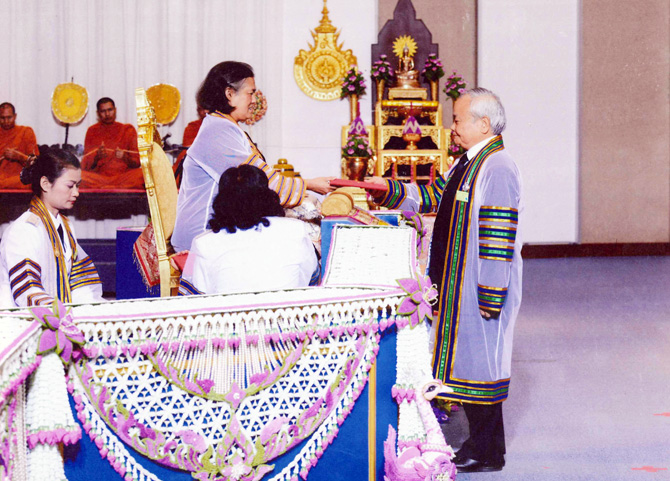
Photo 1.
Princess Sirindhorn smiled a little at this time, possibly having been reminded by someone of the events of 24 years before. The scene was broadcast throughout the entire country, and many were surprised by the Princess’s smile. Princess Sirindhorn personally presented the degrees and diplomas to every one of the graduates, following which she read a congratulatory message from the King. The entire auditorium was greatly moved and touched by this.
Representatives of the graduates then came forward, expressing their gratitude to the King and the country. The entire body of graduates then recited a pledge to use this opportunity to better the nation and devote themselves wholeheartedly to serving the country. This brought the graduation ceremony to a close.
This huge graduation ceremony of 5,000 students, which took some four hours (the Princess took a fifteen minute break), took place in perfect order, and was a serious, formal and very impressive ceremony. A great deal of practice and rehearsal was needed to conduct a ceremony such as this, and I myself had to rehearse my role several times. At the evening reception sponsored by the university, the head of the board of trustees said, “A long ceremony like this must have been hard on you. What did you think about it?” He was probably expecting me to reply that the ceremony should have been briefer, like the ones in Japan.
But I told him the following: “Such ceremonies must not be easy on the royal household, but I hope that this type of formal, blessed graduation ceremony will continue. Having a ceremony where the graduates pledge to be of service to society and their country gives them a greater awareness that they have become full-fledged members of society, the DNA needed to help society evolve into something even better. This is a mechanism to deploy the fundamental potential needed to develop the nation of Thailand. The prosperity of great nations is supported by that potential, and maintaining this tradition is not only part of a historical continuity, but will help the graduates grow as a source of the nation’s strength. Because of it Thailand will become, as time passes, an even better nation. Japan used to have ceremonies such as this, but nowadays regretfully it does not.”
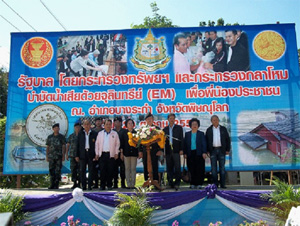
[Photo caption:] The Military, Ministry of Natural Resources, and the Ministry of Social Development and Human Society Participated in the Kick-Off Ceremony for EM Activities Directed at Flood Relief After the Massive Flood of 2011
When the head of the board of trustees and the university president heard these remarks I made, they were both surprised and moved, and felt renewed pride in their nation’s universities and the graduation ceremonies that close out the school year.
In addition to having the honorary doctorate conferred on me by Rajamangala University of Technology, I was also asked to serve as honorary chairman of the university-sponsored international conference on “Eco Construction and Eco Energy.” For this purpose I again visited Thailand in mid-December, when I provided advice and helped launch a model energy-saving enterprise that utilizes EM Technology.
On November 5th I gave a commemorative lecture at the Ratanakosin campus, which had sponsored my honorary doctorate. Many people working in EM-related areas attended, as did representatives from the National Housing Authority, Ministry of Social Development and Human Society, and the military, and it was a wonderful opportunity to renew old acquaintances.
At the Ratanakosin campus we also decided to conduct joint research in the fields of eco construction and eco energy, and to substantiate findings at actual National Housing Authority sites.
EM was first introduced to Thailand in October, 1986. EM had remarkable success, and in order to disseminate its use throughout Asia, in the fall of 1989 we held an international conference on EM and Nature Farming at Khon Kaen University in northeastern Thailand, a university that, at the time, was a sister school of the University of the Ruykyus. Along with preparing for this conference I was also invited to attend the ceremony marking the 30th year since the university’s founding.
At the ceremony, from the Royal Family Princess Sirindhorn attended as representative of the King. At the time EM had been remarkably successful as part of the King’s agriculture promotion project (the King’s Project), and in order for the Princess to have a deeper understanding of this I proposed to present her with an English-language research paper I had written on EM that was used at the world organic farming conference held in Burkina Faso in Africa. I was told just beforehand that there was no precedent for such a thing but that my wishes would be conveyed, and since no objections were then raised it was decided to proceed. That night I had to practice the presentation formalities many times. Afterwards I learned that Princess Sirindhorn had a deep understanding and appreciation for microorganisms.
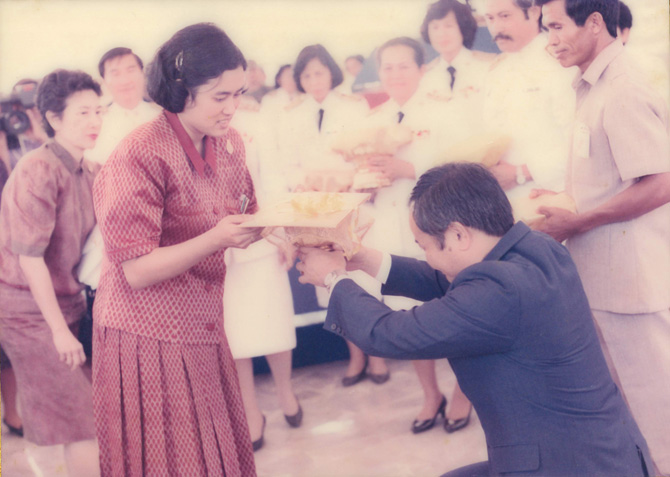
Photo 2
Photo 2, dated February 6, 1989, shows this presentation. At the time, northeastern Thailand was suffering from a great drought and farming villages were impoverished, and EM was starting to draw attention as a possible solution. I wanted to present the paper to the Princess because I hoped that EM Technology, which had already demonstrated proven results in the King’s Project, would contribute to solving agricultural issues in Thailand (particularly in the northeast region) as well as environmental issues, and also because of the upcoming first international conference that would held in October at Khon Kaen University.
This sort of presentation was quite exceptional, and those working on EM at Khon Kaen University celebrated the future of EM in Thailand. The international conference in October of that year was a great success, and we founded APNAN (Asia Pacific Natural Agriculture Network). Based in Bangkok, APNAN truly plays a leading role in disseminating EM throughout Asia and the Pacific. It is my hope that this recent visit will serve as the opportunity to build on the foundational use of EM Technology in agriculture and the environment to shift to its use also in the medical and health fields, engineering and construction, all kinds of industries, and energy and energy-saving fields, and that through this we can further develop an EM-based model for the future.
Editor’s Picks
-
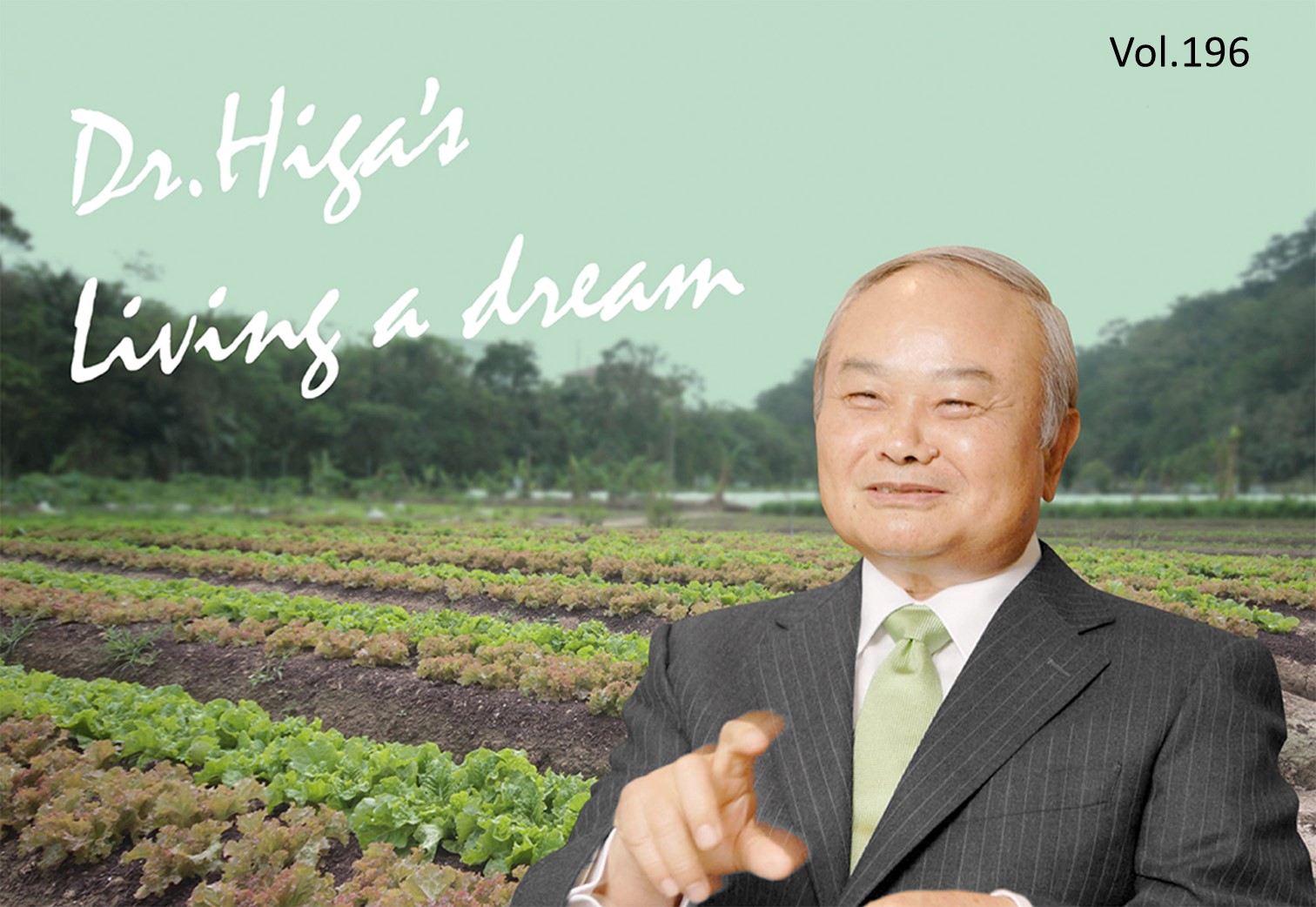
#196 The Steadily Evolving EM Nature Farming Method at the Blue Sky Palace - Part 6 -
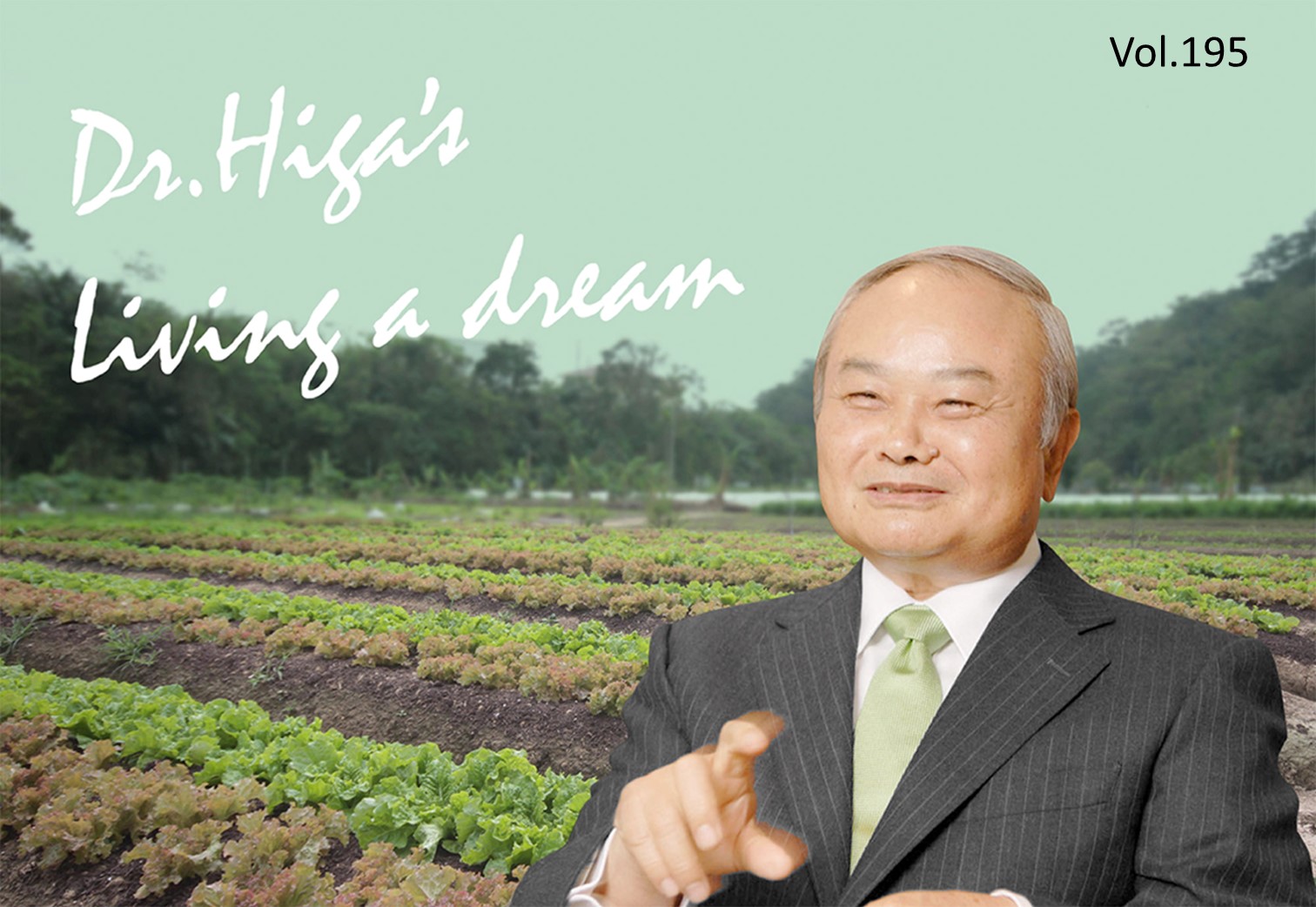
#195 The Steadily Evolving EM Nature Farming Method at the Blue Sky Palace - Part 5 -
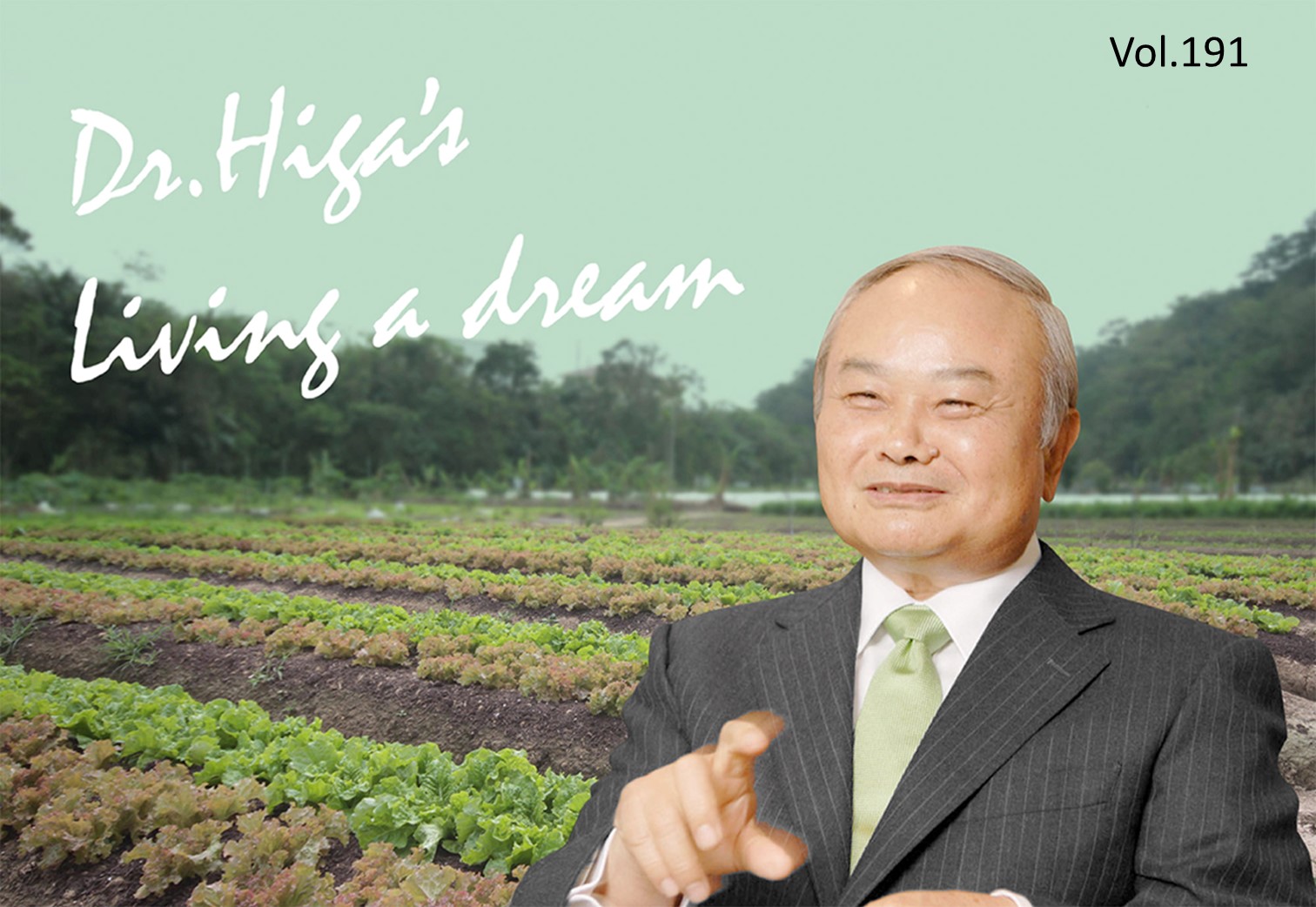
#191 Steadily Evolving EM Nature Farming Method at the Blue Sky Palace -
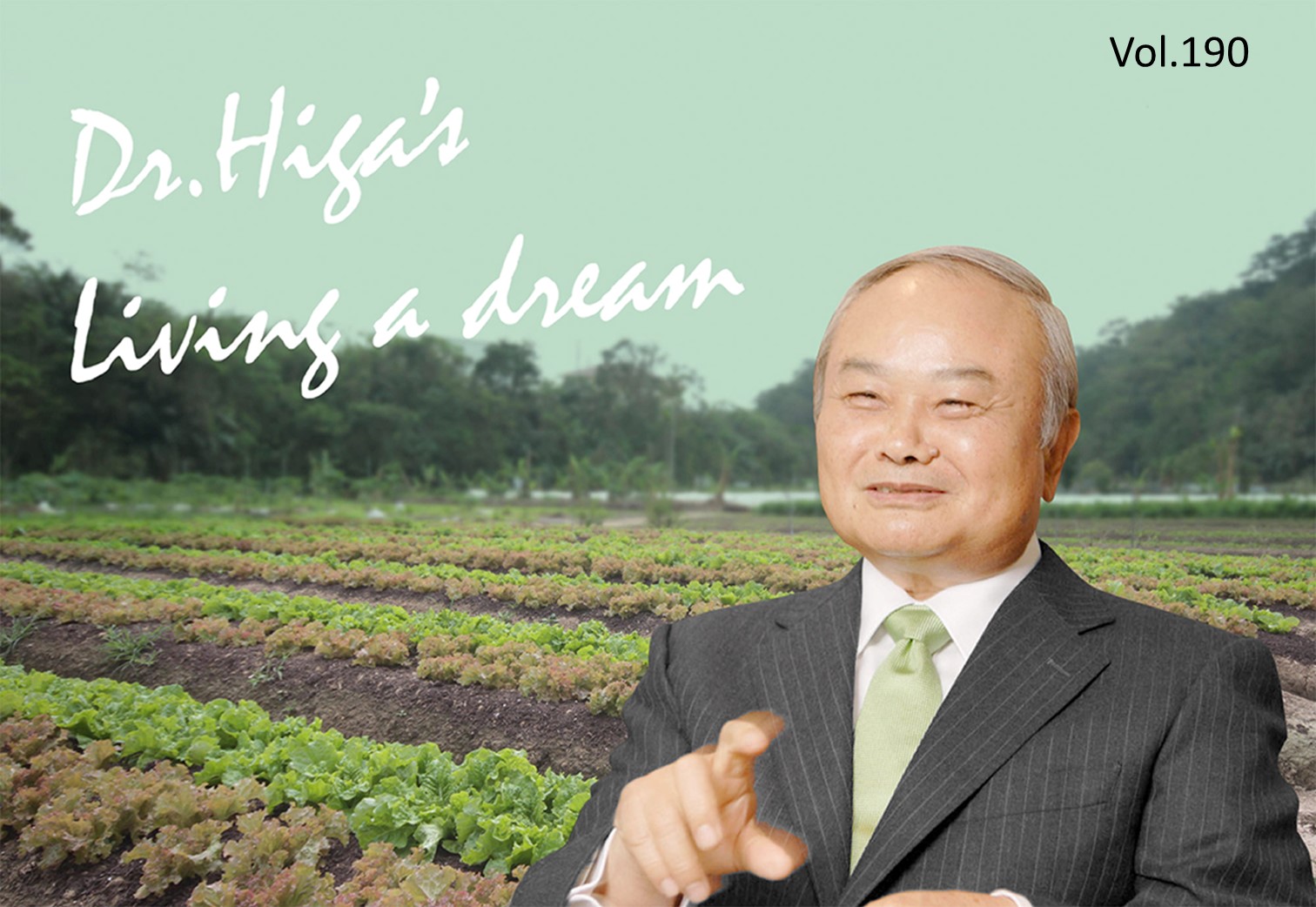
#190 Quantum Mechanical Effects of EM Gravitron Charcoal
- 2025
- Sep:#209 The Widespread Use of EM in Ecuador
- Sep:#208 The Widespread Use of EM in Chile
- Jul:#207 Peru, where EM has taken root throughout the country
- May:#206 EM Application Technology in Paraguay Begins to Evolve into Advanced Circular Agriculture
- May:#205 Practical Application of Soil Disinfectant-Free Cultivation Using EM Technology
- Apr:#204 How EM Use Has Spread Throughout the Philippines
- Mar:#203 How to Use EM to Fundamentally Solve the Problem of Agricultural Residue Burning
- Feb:#202 The Spread of EM technology in Germany
- Jan:#201 The 2nd Ichiro Masaki Memorial Universal Village EM International Conference
- Jan:#200 Cleanup of the Ala Wai Canal in Hawaii, where social bonds are strengthened using EM
- 2024
- Nov:#199 EM trials in India with bananas, tomatoes, and pomegranates
- Oct:#198 The Steadily Evolving EM Nature Farming Method at the Blue Sky Palace - Part 8
- Sep:#197 The Steadily Evolving EM Nature Farming Method at the Blue Sky Palace - Part 7
- Aug:#196 The Steadily Evolving EM Nature Farming Method at the Blue Sky Palace - Part 6
- Jul:#195 The Steadily Evolving EM Nature Farming Method at the Blue Sky Palace - Part 5
- Jun:#194 Steadily Evolving EM Nature Farming Method at the Blue Sky Palace - Part 4
- May:#193 Steadily Evolving EM Nature Farming Method at the Blue Sky Palace - Part 3
- May:#192 Steadily Evolving EM Nature Farming Method at the Blue Sky Palace - Part 2
- Apr:#191 Steadily Evolving EM Nature Farming Method at the Blue Sky Palace
- Mar:#190 Quantum Mechanical Effects of EM Gravitron Charcoal
- Mar:#189 The barrier space in Okinawa (Ryukyu Islands) has risen to another dimension
- Jan:#188 Sixty Days after Typhoon No.6
- 2023
- Oct:#187 Supermassive Typhoon No.6 and Subsequent Typhoon No. 11
- Sep:#186 Massive Typhoon No.6 that swallowed the Ryukyu Islands Graviton barrier
- Sep:#185 August 8th is World “EM Mudball Day”
- Aug:#184 A disease-free life depends on the health of the intestinal microbiome.
- Jul:#183 Trial and Error at the Blue-Sky Palace, Part 3
- Jun:#182 Trial and Error at the Blue-Sky Palace, Part 2
- Apr:#181 Trial and Error at the Blue-Sky Palace
- Mar:#180 Ala Wai Canal Cleanup Project in Waikiki, Hawaii
- Feb:#179 High-Yield, High-Quality Rice Production Using EM
- Feb:#178 The Progress the "Soil Preparation Workshop" of the Oishi 3-chan Club (Part 2)
- Jan:#177 Organic Farming Instructional Manual Using EM
- 2022
- Nov:#176 The Typhoon Situation in Okinawa in 2022
- Sep:#175 Third-Party Verification of the Graviton barrier in Okinawa Part-2
- Sep:#174 Third-Party Verification of the Graviton barrier in Okinawa
- Aug:#173 Ecosystem Changes Observed in Okinawa in 2021 Part-5
- Jun:#172 Ecosystem Changes Observed in Okinawa in 2021 Part-4
- May:#171 Ecosystem Changes Observed in Okinawa in 2021 Part-3
- Apr:#170 Ecosystem Changes Observed in Okinawa in 2021 Part-2
- Mar:#169 Koizumi Farm in Kamakura Continues to Evolve
- Feb:#168 Ecosystem Changes Observed in Okinawa in 2021 Part-1
- 2021
- Dec:#167 Enjoying EM Technology While Enriching the Local Ecosystem
- Nov:#166 A Case Study of the Use of EM in a Next Generation Free School in Tune with the Cycles of Nature
- Oct:#165 Typhoon conditions and flowers in Okinawa from August to October
- Sep:#164 Re-learning the origins of river purification using EM Cleaning up the Dairyuji River in Senami (Murakami City, Niigata Prefecture)
- Aug:#163 Measures Against Natural Disasters and Re-learning the Starting Point of EM
- Jul:#162 Summary of FFC (Foods for Children) Okinawa Forum 2021
- Jun:#161 Restoring the Vigor of an Old Tree and Purifying the Environment with EM Technology That Even an Amateur Can Do
- May:#160 The Public is Beginning to Recognize the Use of EM Smokeless Carbonizers
- Apr:#159 EM Hado (EM Graviton) that exerts quantum superposition effect over time
- Mar:#158 Virus-free Okinawan Plants Through Use of an EM Graviton Barrier
- Jan:#157 Enjoyable Farming for Self-Sufficiency that Even Amateurs Can Do
- 2020
- Dec:#156 EM quantum energy effect occurring in Okinawa
- Nov:#155 Implementing EM graviton farming as a flood countermeasure for apple orchards
- Oct:#154 The Latest Book on the Practical Uses of EM "You Are the One Who Draws Out the Power of Microorganisms," by Chizuko Nomoto
- Sep:#153 Application of EM technology to long periods of rain, lack of sunshine, storms, heavy rains, etc.
- Aug:#152 EM application in Kitanakagusuku village plant waste recycling yard
- Jul:#151 Natural Disaster Countermeasures Using EM Technology: Part 2
- Jul:#150 Natural Disaster Countermeasures Using EM Technology
- May:#149 How to make your home and workplace an energy spot by living a complete EM lifestyle: creating the ultimate source of health and environmental purification
- Apr:#148 EM, Viruses and the Pandemic
- Apr:#147 New agriculture applying quantum mechanics Part 2
- Apr:#146 New agriculture applying quantum mechanics
- Apr:#145 Wonderful EM Miracle
- 2019
- Nov:#144 The movie “Revival II” and the reality of Fukushima
- Oct:#143 Boundary dome and foliar spraying of EM・X GOLD and EM 3
- Oct:#142 Kirakira (Sparkling) Summer Vegetable Festa in 2019
- Aug:#141 Excessive salt inevitably causes salt damage
- Jul:#140 Diverse applications of charcoal Part 3
- Jun:#139 Diverse applications of charcoal Part 2
- Jun:#138 Diverse applications of charcoal
- Jun:#137 Purification power of salt
- May:#136 The degree of soil contamination is a reflection of the microflora
- May:#135 Definitive use of EM barriers to deal with typhoons
- May:#134 Implementing authentic Nature Farming
- May:#133 How to enhance healthy Hado (wave energy) by EM
- May:#132 Eating Dirt (Soil)
- May:#131 Hado (Wave energy) involved in health
- May:#130 Reaffirming EM technology to realize the essence of agriculture
- May:#129 The 2nd EM Producer Networking Meeting
- Apr:#128 Understanding the application of seawater and salt in crop cultivation
- Apr:#127 Prevention of Disasters by EM Technology
- Mar:#126 Quantum overlay effective utilization of EM
- Jan:#125 EM Disaster Recovery Support Projects in 2017
- 2018
- 2017
- Aug:#121 Escape from conventional agricultural traps
- Jul:#120 Limitation and important caveats regarding utilization of salt
- Jun:#119 EM Technology to Break Through the Limits of Pesticide-Free Strawberries
- May:#118 Application of barriers using EM rectification force
- Apr:#117 The 1st EM Produce Growers' Networking Conference
- Mar:#116 Sumizo kun: The Ultimate Versatile Carbonization Equipment
- Feb:#115 How to make and use simple carbonized and rectified ash
- Jan:#114 Achievements of 2016
- 2016
- Dec:#113 Definitive Measures Against Typhoons
- Nov:#112 International Conference on Universal Village
- Oct:#111 90% of Your Body is Microbes
- Sep:#110 Disaster Countermeasures Using EM
- Aug:#109: Changes in the Natural Environment by EM Barrier Domes in Okinawa
- Jul:#108: Multi-purpose Utilization of Activated EM with Seawater and Salt
- Jun:#107: Marine Day, when EM Mudballs and Activated EM are Applied Throughout Japan
- May:#106: The Function of EM and Gravitational Waves–Part 3
- Apr:#105: The Function of EM and Gravitational Waves–Part 2
- Feb:#104: The Function of EM and Gravitational Waves
- Feb:#103: The Importance of Phototrophic Bacteria in EM
- 2015
- Dec:#102: Results of Environmental Forum "Utsukushima EM Paradise" 2015
- Nov:#101: Environmental Forum "Utsukushima EM Paradise" 2015
- Oct:#100: A New Phase of Limit Breakthrough Using EM
- Sep:#99: A New Phase of Limit Breakthrough through EM
- Aug:#98: The Tokyo Bay Area Began Creating a Truly Livable Hometown
- Jul:#97: Rectifying Effects of EM
- Jun:#96: Lake Suwa Sousei lecture
- May:#95: In Order to Further Ensure Limit Breakthrough
- Apr:#94: Theatrical Release of the Documentary Film SOSEI-Revival to Enlighten People on the New Possibilities of Microorganisms
- Mar:#93: What Underlies Limit Breakthrough (Part 2)
- Feb:#92: EM Functions to Break Through Limits
- Jan:#91: At the Start of 2015
- 2014
- Dec:#90: Looking Back at 2014
- Nov:#89: Shikoku EM FESTA 2014, Virtuous Circle Conference in Matsuyama, Ehime Prefecture
- Oct:#88: Using EM to Deal with Weather Disasters (Part 2)
- Sep:#87: Current Status of Radioactivity Measures Using EM in Fukushima
- Aug:#86: APNAN (Asia Pacific Natural Agriculture Network) 25th Anniversary Conference in 2014
- Jul:#85: Using EM to Deal with Weather Disasters
- Jun:#84: Substantial Improvement of Soil
- May:#83: The Energy Rectification Force of EM
- Apr:#82: The Annual 18th EM Technology Exchange Meeting and Tohoku Conference in Shichigahama
- Mar:#81: Salmon going upstream in Kitaura (Kasumigaura)
- Feb:#80: The Microbiome Again
- Jan:#79: Inauguration of the Federation of Diet Members Who Use and Apply Effective Microorganisms
- 2013
- Dec:#78: Receiving an Honorary Doctoral Degree from Rajamangala University of Technology in Thailand
- Nov:#77: The Use of EM in School Education in Bhutan
- Oct:#76: Well of Bonding
- Sep:#75: The Background to EM Not Being Employed by Public Institutions to Deal with Radiation
- Aug:#74: Dealing with Disaster: Using EM in Crisis Management
- Jul:#73: EM Events on Ocean Day
- Jun:#72: Using EM to Deal With Heat Stroke and Summer Heat Fatigue
- May:#71: An EM Model Town in Malaysia
- Apr:#70: Steps the Japanese Government is Taking to Deal with Radiation: Are They Really Safe?
- Mar:#69: EM Group Disaster Reconstruction Aid Project in Fukushima
- Feb:#68: EM and Microbiomes (Microbial Flora)
- Jan:#67: A Necessary Evil is Still Evil
- 2012
- Dec:#66: The 17th National EM Technology Exchange Conference / Hokkaido Conference in Sapporo
- Nov:#65: EM Forum 2012 in Okinawa and the Environmental Forum in Fukushima
- Oct:#64: 2012 EM Forum
- Sep:#63: A New Earth Saving Revolution
- Aug:#62: The Asahi Newspaper’s Misguided Reports About EM
- Jul:#61: Using EM in Radioactive Contamination Measures in Fukushima Prefecture
- Jun:#60: The Effects of Using EM to Inhibit the Absorption of Radioactivity as Confirmed in Fukushima
- May:#59: Recovery Support for the Great East Japan Earthquake
- Apr:#58: The Royal Kingdom of Thailand, in which EM Functions as a Set Government Policy
- Mar:#57: Report on the Measures Taken by Kingdom of Thailand Using EM to Deal with Polluted Water
- Feb:#56 EM™ as Part of National Policy in Thailand to Deal with Sanitation Issues Resulting from the Flood of 2011
- Jan:#55 The Law of Syntropy (Revitalization)
- 2011
- Dec:#54 EM Forum 2011
- Nov:#53 Shikoku EM Festa 2011- Zenjunkan no Wa (Virtuous Circle) Tokushima Conference in Naruto -
- Oct:#52 The Mystery of Interim Safety Values for Radioactive Material
- Sep:#51 Successful Radiation Countermeasures Using EM
- Aug:#50 Events on Sea Day in which EM Mud Balls are Thrown into the Water and Activated EM is Applied.
- May:#47 Dealing with the Damage Caused by the Eastern Japan Earthquake
- Apr:#46 Eastern Japan Earthquake
- Mar:#45 The 16th National EM Technology Hokuriku Conference in Fukui
- Feb:#44 More Thoughts on Avian Influenza and Foot-and-Mouth Disease
- Jan:#43 Happy New Year!
- 2010
- Dec:#42 Shikoku EM FESTA 2010・Zenjunkan no wa (Virtuous Circle) Fellowship Conference in Tobe, Ehime Prefecture
- Nov:#41 EM Forum 2010
- Oct:#40: My Thanks to the EM™ Volunteers Who Helped in the Fight Against Foot-and-Mouth Disease in Miyazaki Prefecture
- Sep:#39 International EM Mud Ball Day
- Jul:#37 Poland EM Forum 2010
- Jun:#36 EM Countermeasures Against Foot-and-Mouth Disease
- May:#35 Abnormal Weather
- Apr:#34 EM Activities in Thailand: Finding Solutions to the Challenges Facing the Nation
- Mar:#33 New Developments in the Evolution of EMTM in Thailand
- Feb:#32 Results Starting to Be Seen at the Mikasa Project
- Jan:#31 Towards an EM-Use Society
- 2009
- Dec:#30 EM Summit
- Nov:#29 The System in Penang State in Malaysia that Made the World EMTM Mudball Day a Success
- Oct:#28 The "World EM Mudball Day" in Malaysia
- Sep:#27 Validating EMTM Medicine: Case Study Reports from EM Users 2009. (Part 3)
- Sep:#26 Validating EMTM Medicine: Case Study Reports from EMTM Users 2009. (Part 2)
- Jul:#25 Validating EMTM Medicine: Case Study Reports from EMTM Users 2009. (Part 1)
- Jun:#24 Activities to Disseminate EM-Focused Nature Farming in China
- May:#23 Use of EMTM in Response to Swine Flu
- Apr:#22 Using EM to Solve Public Administrative Costs
- Mar:#21 Reaffirming the Versatility of EM
- Jan:#20 The Beginning of a New Era
- 2008
